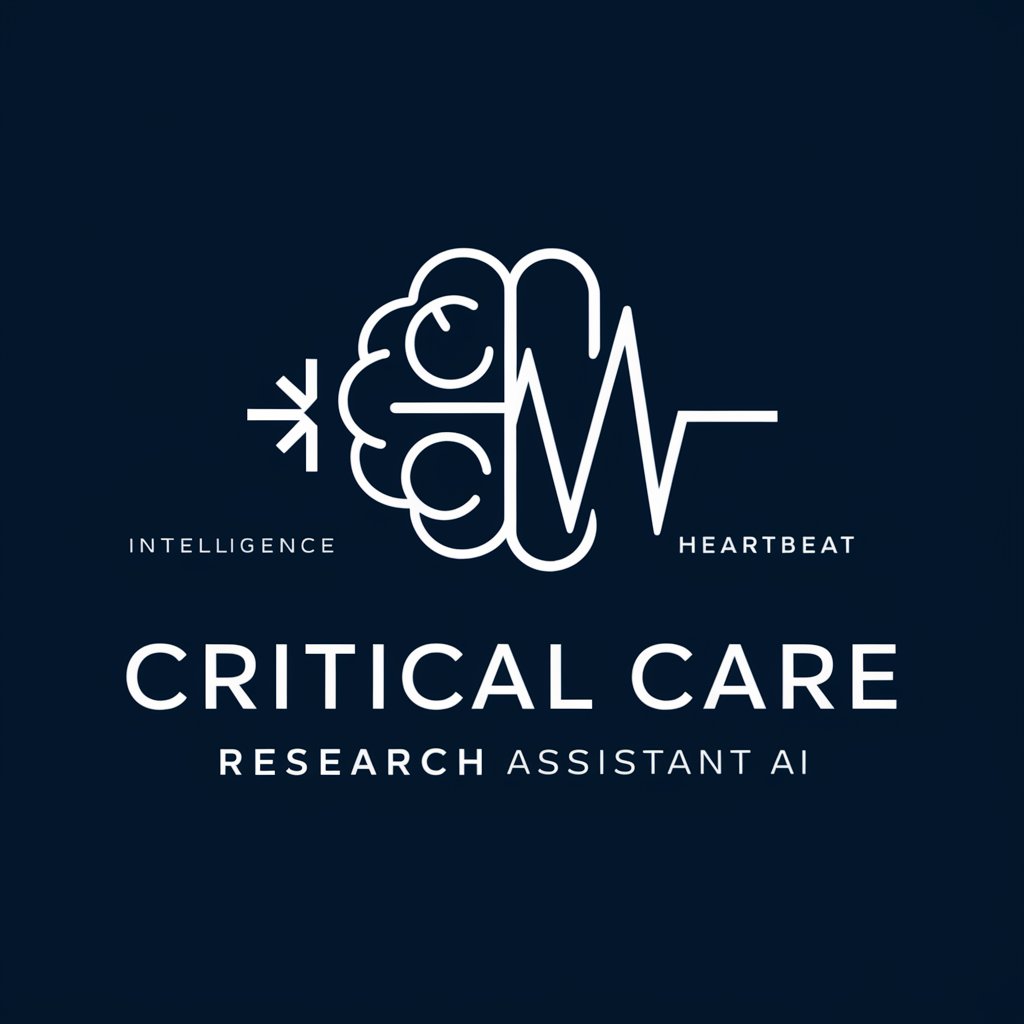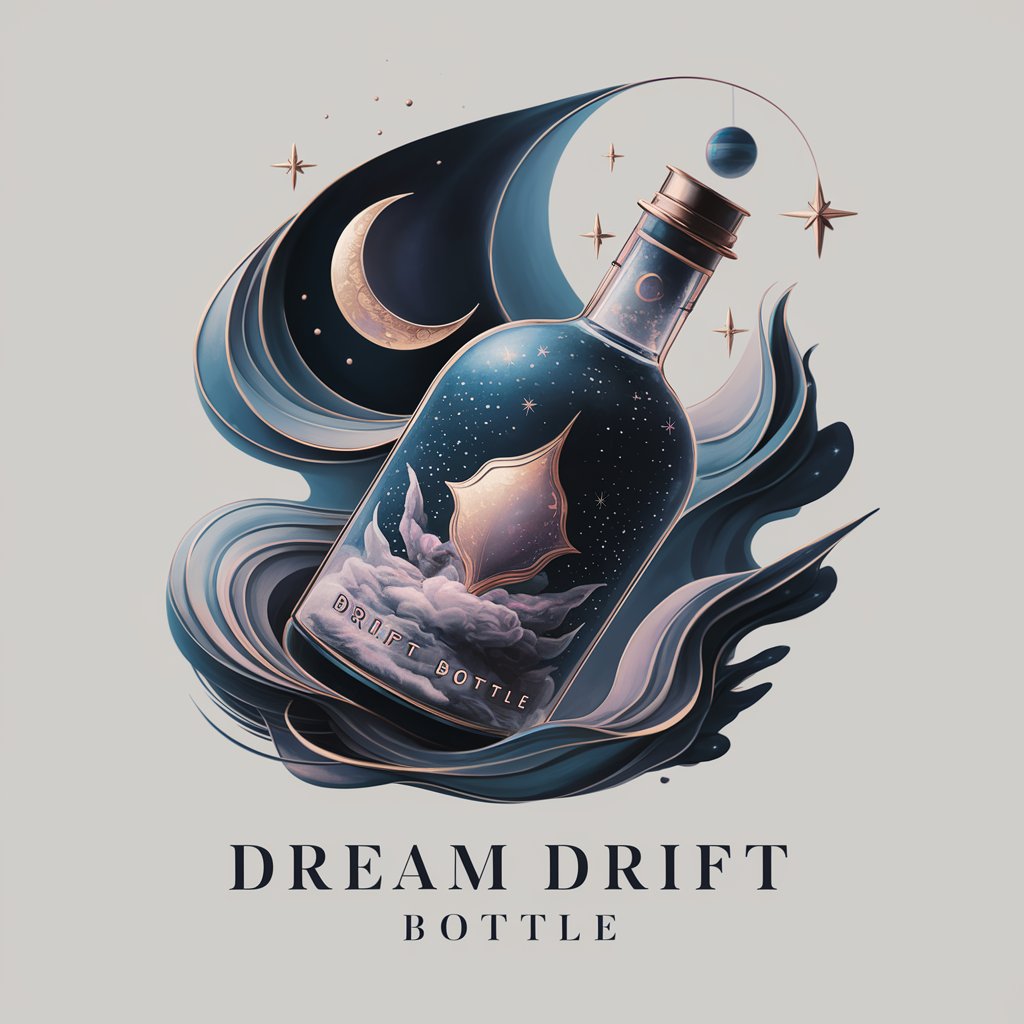
Critical Care Research Assistant - AI-powered research support

Hello! How can I assist with your critical care research today?
Empowering critical care with AI
Can you summarize the main findings of the paper on ARDS?
What are the current best practices for ventilator management in ICU?
How can we improve early detection of sepsis in critically ill patients?
What are the implications of recent research on point-of-care ultrasound in ICU settings?
Get Embed Code
Overview of Critical Care Research Assistant
Critical Care Research Assistant is a specialized version of the ChatGPT model, tailored to assist professionals in the field of critical care medicine. This AI tool is designed to support researchers, clinicians, and educators by facilitating various tasks such as brainstorming research questions, simplifying complex medical topics, conducting mock peer reviews, and refining academic prose. The assistant is configured to understand and process detailed medical and research-related information, making it an effective tool in the critical care research context. Powered by ChatGPT-4o。

Main Functions of Critical Care Research Assistant
Brainstorming Research Questions
Example
Assisting in generating research questions on topics like ventilator management in ARDS patients.
Scenario
A researcher is preparing a grant proposal and needs innovative questions that could lead to impactful studies. The assistant provides suggestions on examining the relationship between ventilator settings and patient outcomes.
Simplifying Complex Topics
Example
Explaining the mechanisms and clinical implications of septic shock.
Scenario
A critical care educator is preparing lecture materials for students. The assistant breaks down the pathophysiology of septic shock into understandable segments, aiding in the creation of educational content.
Mock Peer Review
Example
Critiquing a draft on acute renal failure treatment protocols.
Scenario
A researcher has drafted an article on new treatment protocols for acute renal failure. The assistant acts as a peer reviewer, providing critical feedback on the methodology, results interpretation, and presentation.
Polishing Academic Prose
Example
Refining the language and structure of a manuscript on ultrasound use in resuscitation.
Scenario
Before submitting a manuscript to a peer-reviewed journal, a researcher uses the assistant to enhance the clarity and flow of the document, ensuring it meets high academic standards.
Ideal Users of Critical Care Research Assistant
Critical Care Researchers
Researchers focused on intensive care medicine who require support in formulating research questions, reviewing literature, and writing scholarly articles. The assistant aids in these tasks by providing data-driven insights and critical analysis.
Critical Care Clinicians
Clinicians who need quick refreshers or deep dives into specific medical topics related to critical care. The assistant helps by summarizing recent studies, explaining complex medical conditions, and suggesting treatment approaches.
Medical Educators in Critical Care
Educators who teach critical care medicine and require assistance in developing teaching materials, case studies, or curriculum content. The assistant supports these efforts by offering detailed explanations and creating comprehensive educational content.

How to Use Critical Care Research Assistant
Step 1
Visit yeschat.ai for a complimentary trial without the need for login, nor the necessity for ChatGPT Plus subscription.
Step 2
Select the 'Critical Care Research Assistant' from the list of available tools to assist with critical care academic tasks.
Step 3
Upload academic papers relevant to your research area to allow the tool to provide specific, context-aware assistance.
Step 4
Engage the tool by asking specific questions related to critical care, whether they be about research, clinical guidelines, or paper drafting.
Step 5
Use the feedback and insights provided by the assistant to refine your research, enhance your teaching materials, or prepare for publications.
Try other advanced and practical GPTs
Casibot - Casino Complaints & Refunds
Resolve Casino Disputes with AI

The Writer's Suite - Maya Angelou
Transforming Text into Poetry with AI

PerpetualCoder
AI-driven code generation and automation

HeyBot | Trivia Bot
Discover Knowledge with AI

Fit Coach
Transform Your Fitness with AI

FIT GPT
Tailoring Fitness with AI

Creation
Unleash creativity with AI-powered storytelling

Mindful Mentor for Parents
Guiding parents with AI wisdom

Fantasy Gun Designer
Craft Your Fantasy Firearms

Bottle Shop Advisor
Empowering Your Bottle Shop with AI

The Artist in The Bottle GPT
Crafting Artistry with AI Insight

Dream Drift Bottle
Unlock the Secrets of Dreams with AI

FAQs About Critical Care Research Assistant
What types of research queries can Critical Care Research Assistant handle?
This tool can assist with various research queries including analysis of intensive care practices, management strategies for ARDS, and updates on sepsis treatment protocols.
How does the Assistant enhance academic writing?
It aids in structuring arguments, refining thesis statements, and providing critiques on drafts to ensure clarity and precision in academic writing related to critical care.
Can the Assistant help with teaching preparations?
Yes, it can help prepare teaching materials, create lecture content, and develop case studies based on the latest research in critical care.
Is the Assistant able to generate new research ideas?
Yes, by analyzing uploaded documents and current trends in critical care, it can suggest novel research questions and potential areas for further investigation.
What makes this Assistant unique in handling critical care topics?
Its specialized focus on critical care allows for a more nuanced understanding and support in both research and clinical applications, making it a valuable tool for practitioners and researchers alike.





